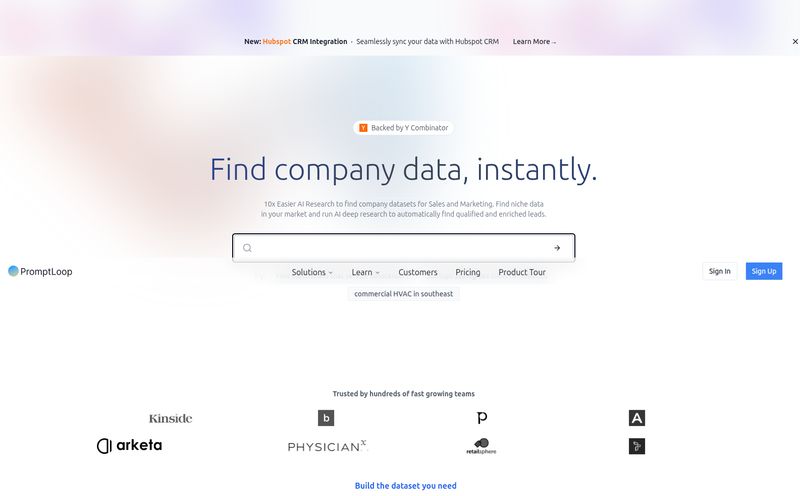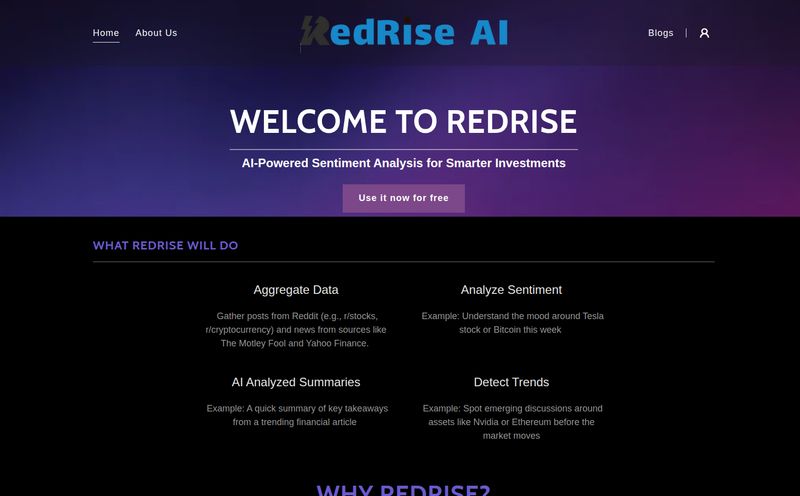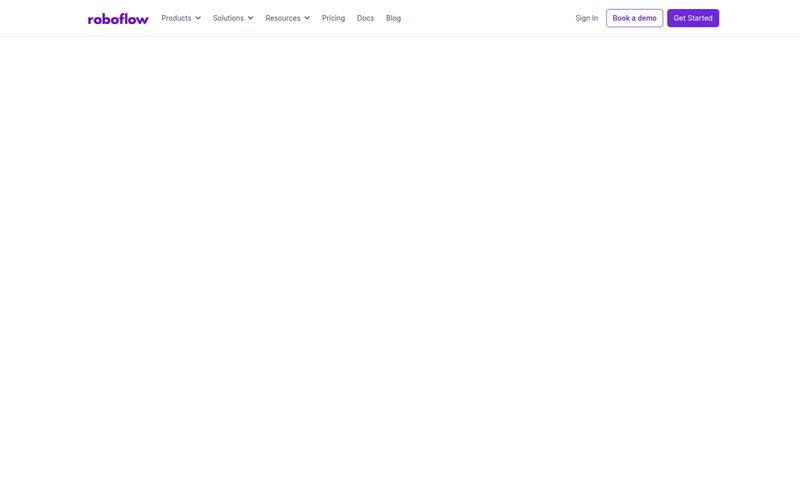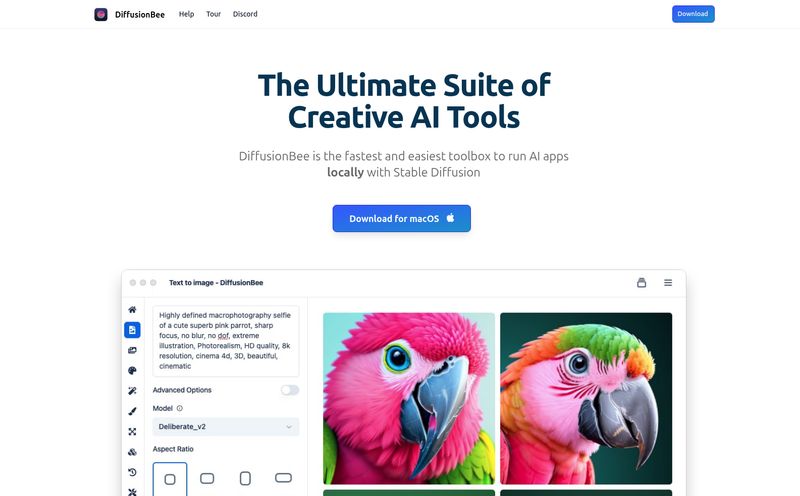The AI hype train is moving at light speed, and frankly, it's getting a little exhausting. Every other day there’s a new tool that can write your emails, generate a picture of a cat surfing on a slice of pizza, or summarize a meeting you probably shouldn't have skipped. Fun stuff, sure. But is it changing the world?
Every now and then, though, you stumble across a company that’s not just making another chatbot. They’re using this incredible processing power to tackle some seriously heavy-duty, real-world problems. And that, my friends, is where I find myself today, looking at a company called Variational AI. They’re not building tools for us marketers or content creators. They’re in the high-stakes world of drug discovery, and what they're doing is pretty fascinating.
As someone who spends their days neck-deep in algorithms, traffic trends, and CPC, I have a healthy dose of skepticism for anything that promises to “revolutionize” an industry. But I’m also a massive nerd for elegant, data-driven solutions. So, let’s put on our lab coats (figuratively, of course) and see if Variational AI is the real deal.
So What is Variational AI, Really?
At its core, Variational AI is a company using generative AI—the same kind of tech behind tools like Midjourney—to design brand-new molecules for new medicines. They partner with biopharmaceutical companies to speed up the painfully slow, expensive, and often frustrating process of finding new drug candidates.
Traditionally, finding a “lead structure” for a new drug is like searching for a very specific needle in a haystack the size of a galaxy. Scientists screen millions of existing compounds, hoping one sticks. It takes years. It costs a fortune. And most of the time, you hit a wall.
Variational AI aims to change that. Instead of just searching, their platform, called Enki™, creates. It designs novel molecules from scratch, tailored to do a specific job. It's less about finding the needle and more about designing and printing a perfect, custom-built needle on demand. That’s a pretty big shift in thinking.
Meet Enki™: The Generative AI Powerhouse
The star of the show here is Enki™. The website calls it the “first commercially accessible foundation model for small molecules,” which is a mouthful. In plain English, it’s a highly specialized AI that has been trained on a mind-boggling amount of real-world experimental data. We’re talking trillions of data points. This isn't an AI that just read Wikipedia; it's an AI that has essentially completed a PhD in medicinal chemistry and pharmacology by studying a massive library of past experiments.
"We are a team of experienced AI/ML and medicinal chemistry experts who have successfully redefined the unit economics of drug discovery and development." - Variational AI
How Enki™ Flips the Script on Discovery
Here’s the part that really caught my eye. The headline on their site says: “No Data Required. Just Define Your TPP.”
In our world of SEO and marketing, “no data required” is a huge red flag. You need data. But here, it means something different. It means the client—the pharma company—doesn’t need to come to the table with a starting molecule or a bunch of initial research. They just need to know what they want the final drug to do.
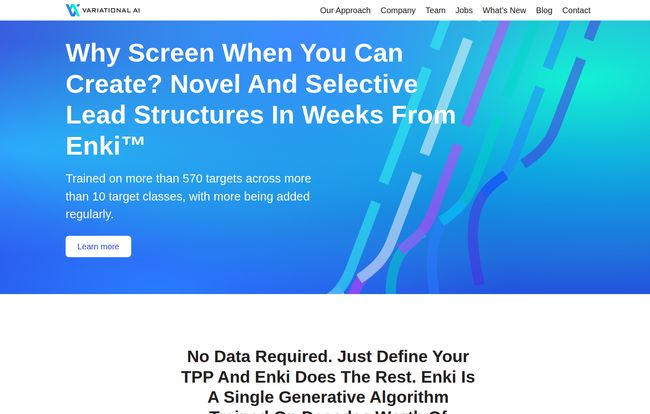
Visit Variational AI
This is where the “Target Product Profile” (TPP) comes in. Think of the TPP as the ultimate creative brief, but instead of commissioning a new logo, you’re commissioning a new molecule. The TPP outlines all the desired characteristics: what it should target in the body, how potent it should be, what side effects to avoid, etc. It’s the wishlist. Enki™ takes that wishlist and generates molecules that fit the bill. It can apparently create novel and selective lead structures in a matter of weeks, not years. That’s a bold claim.
The Good, The Bad, and The AI-Generated
No tool is perfect, and in a field with such high stakes, you have to look at the potential downsides. I've been in tech long enough to know there's always a trade-off.
The Advantages That Get Me Genuinely Excited
The most obvious pro is speed. Shaving years off the discovery process is monumental. It could mean getting life-saving drugs to patients faster and at a lower overall cost. Another huge plus is the ability to create novel structures. AI isn't bound by conventional human thinking or existing chemical libraries. It can propose solutions that a human chemist might never have conceived of. This isn't just about finding existing answers faster; its about generating entirely new questions and possibilities. Plus, the collaborative model, where clients get access to Variational AI's team of ML and chemistry experts, is a massive value-add. You're not just getting software, you're getting a partnership.
A Healthy Dose of Skepticism
Now, for the reality check. First, defining a good TPP is an art and a science. The platform’s output is only as good as the input brief. This requires deep expertise from the pharmaceutical partner, so it's not a plug-and-play solution for just anyone. Second, and this is crucial, AI-generated molecules require experimental validation. You still need real scientists in real labs to synthesize these molecules and test them. The AI provides a brilliant shortcut to a promising starting point, but it doesn’t eliminate the need for rigorous, old-fashioned science. Anyone who thinks you can just ask an AI for a cure for cancer and be done with it is missing the point. There's also the accessibility issue. This kind of tech won't be cheap, which could create a bigger gap between the big players and smaller research outfits.
Who Is This For and What’s the Price Tag?
It’s pretty clear that Variational AI’s target audience is established biopharmaceutical companies and well-funded research institutions. This is not a tool for the solo bio-hacker tinkering in their garage. This is an enterprise-grade solution for organizations with the resources and, more importantly, the downstream infrastructure to take an AI-generated molecule and move it toward clinical trials.
So, what's the damage to the wallet? As you'd expect, there's no handy 'Pricing' tab with three neat tiers. This is typical for highly specialized B2B platforms. Pricing is almost certainly based on a partnership or licensing model, likely involving a combination of upfront fees, milestone payments, and potentially royalties on any successful drugs that emerge. It’s a significant investment, but one that could pay for itself many times over if it produces a single successful drug.
My Final Take as a Tech Watcher
So, am I convinced? Yeah, I'm pretty impressed. Variational AI feels less like hype and more like a serious application of AI to solve a fundamental problem. They’re not over-promising a magic bullet. Instead, they’ve built a powerful engine to augment the intelligence and creativity of human scientists, and that feels like the right approach.
The real test, of course, will be in the results. The ultimate validation for Enki™ won’t be a slick website or a press release; it will be a novel drug, designed by AI and validated by science, that makes its way through clinical trials and ends up helping people. That's the real finish line. And I, for one, will be watching with a lot of interest. It's a powerful reminder that behind all the buzzwords and algorithms, technology can still be a force for profound good.
Frequently Asked Questions
What is Variational AI's Enki™ platform?
Enki™ is a generative AI platform designed for drug discovery. It uses a foundation model trained on massive amounts of experimental data to design novel, small molecules from scratch based on a user-defined Target Product Profile (TPP).
Do I need my own data to use Variational AI?
No. One of the key features is that you don't need to provide initial data or a starting compound. You only need to define the desired characteristics of the molecule you want to create through a detailed Target Product Profile (TPP).
How does Variational AI speed up drug discovery?
By generating promising, custom-designed lead structures in weeks instead of the years it can take with traditional screening methods. This significantly shortens the initial, and often most difficult, phase of the drug discovery pipeline.
Is Variational AI a replacement for human chemists?
Not at all. It's a tool to augment their abilities. AI can generate novel ideas and starting points, but human expertise is still absolutely essential to define the initial problem (the TPP), evaluate the AI's output, and conduct the physical experiments needed to validate the generated molecules.
How much does Variational AI cost?
Pricing is not publicly listed. It is an enterprise-level platform, and costs are likely structured around partnership and licensing agreements tailored to each client's project. You would need to contact their team directly for information.
Who are the experts behind Variational AI?
The company was founded in 2019 and is led by a team of experts in machine learning, AI, and medicinal chemistry. Their collaborative model means clients get access to this expertise as part of their partnership.
